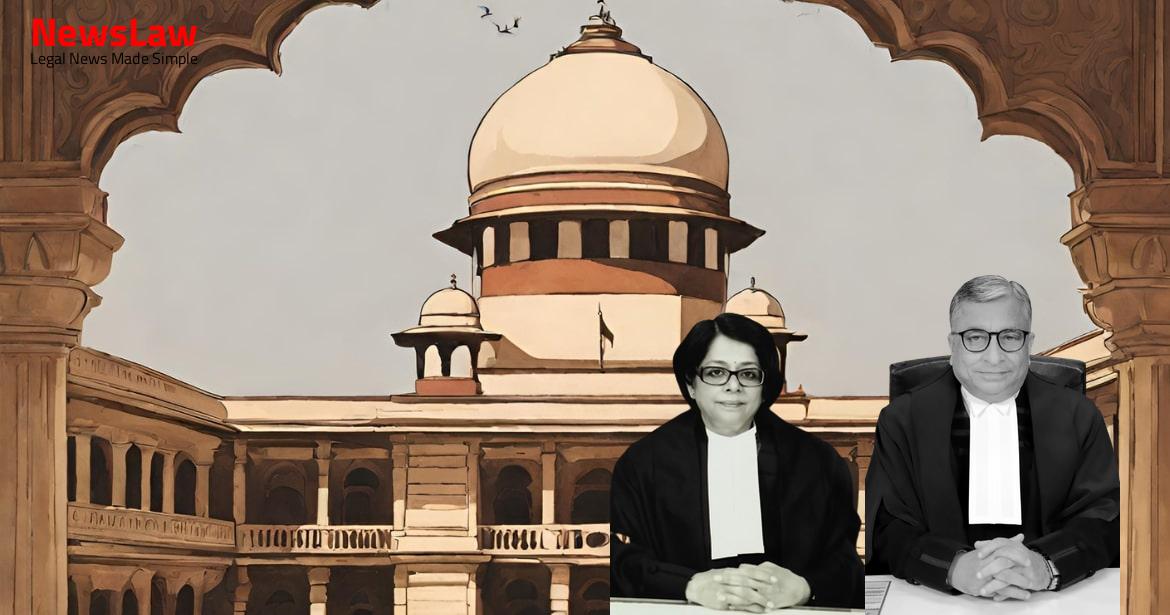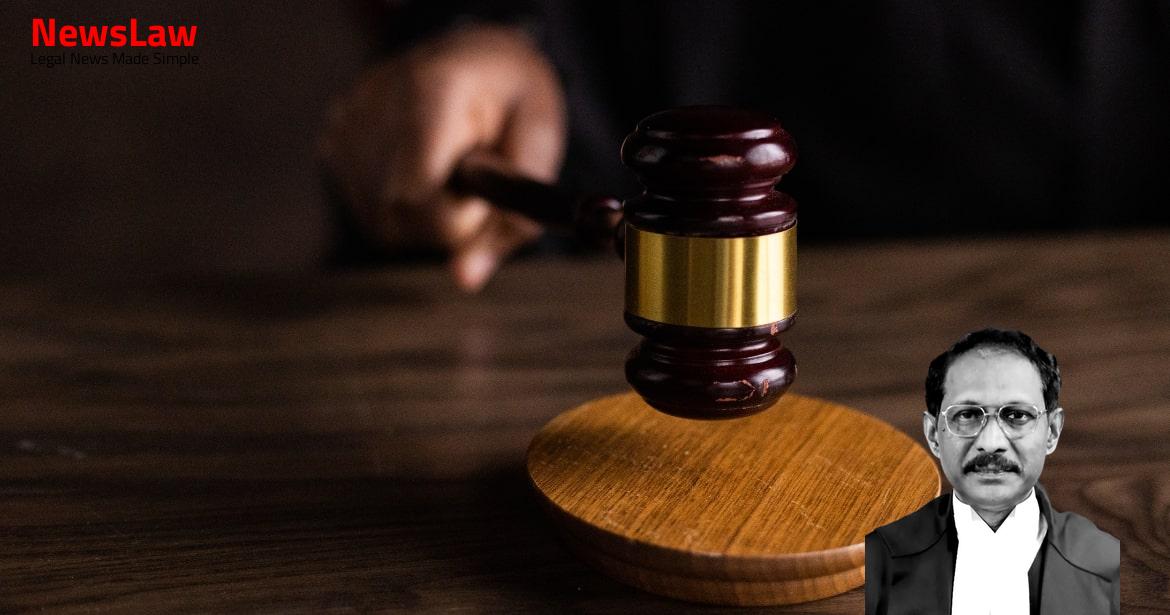The Supreme Court of India has delivered a significant judgment in the case of ‘In Re: Discrimination Inside Prisons in India’, addressing the pervasive issue of discrimination within correctional facilities. This landmark ruling emphasizes the principles of equality and human rights in the treatment of prisoners, irrespective of their backgrounds. The judgment marks a crucial step towards reforming the prison system to ensure fairness and justice for all individuals involved.
Facts
- HJ Khandekar raised concerns regarding the criminal tribes declared as such
- He pointed out the importance of protecting the rights of the individuals from these tribes
- Khandekar emphasized the need for fair treatment and the removal of any discriminatory practices against them
Also Read: Landmark Decision in Taxation Law: Harmonizing TOLA with Income Tax Act
Arguments
- The petitioner’s counsel argued for the deletion of caste references in undertrial and convicts’ prisoners’ registers.
- The Ministry of Home Affairs advised against discriminatory provisions in State Prison Manuals/Prison Acts.
- The counsel emphasized that prisons fall under the States’ domain as per the Constitution.
- Caste-based discrimination persists in prisons, affecting manual labor, barracks segregation, and treatment of certain prisoners.
- The petitioner alleged that Prison Manuals favor specific castes, violating Article 14 of the Constitution.
- The counsel highlighted that the Model Prison Manual, 2016, fails to address caste discrimination adequately.
- Citing a case in Madras High Court, the counsel discussed the need to break traditional beliefs and discriminatory practices.
- Various State prison manuals were shown to endorse unconstitutional practices violating multiple articles of the Constitution.
- The evolution of constitutional interpretation to include newer rights has been crucial in safeguarding citizen rights.
- The Constitution is viewed as a dynamic document reflecting the values and aspirations of its founders.
- Suggestions were made to clarify definitions like ‘Habitual Offenders’ in prison manuals to prevent misuse against specific groups.
- The Ministry of Home Affairs has circulated manuals explicitly barring caste and religion-based discrimination practices.
- Prohibition on labour in prison industries and skill development programs
- Prohibition on work done by undertrial prisoners, high-risk offenders, women prisoners, and young offenders
- Argument that the Manual does not mention provisions of the Prohibition of Employment as Manual Scavengers and their Rehabilitation Act, 2013
- Focus on clauses 2.10 and 6.79 related to toilets
Also Read: Equitable Resolution for Students: Shri Guru Ram Rai University vs. Uttarakhand College
Analysis
- The analysis focuses on the discriminatory practices and biases present in prison manuals and rules, particularly in relation to caste-based discrimination.
- Caste was used as a basis for classifying prisoners, perpetuating stereotypes and maintaining social hierarchies within prisons.
- The colonial era influenced the prison administration, where caste privileges were upheld, and marginalized communities were exploited for specific tasks based on their caste.
- The implications of caste-based classification in prisons were examined in light of constitutional principles of equality, liberty, and dignity.
- Prison manuals segregated prisoners based on caste, assigning certain tasks like cleaning and sweeping to marginalized castes, while reserving cooking for higher castes, perpetuating discrimination.
- The Model Prison Manual 2016 was critiqued for not explicitly prohibiting caste-based discrimination in all aspects of prison management.
- Challenges were raised against the provisions in the Manual that indirectly discriminated against denotified tribes and marginalized castes.
- Recommendations were made for reforming the prison manuals/rules to align with constitutional values and eradicate caste-based discrimination in prisons.
- The judgement highlighted the need for recognizing individual needs and correctional objectives in prison classification, devoid of caste biases.
- The broader goal was to promote substantive equality, fairness, and rehabilitation of all prisoners, irrespective of their caste identities.
- Existing prison manuals and rules have provisions prohibiting discrimination based on caste or religion within prisons.
- The prohibition extends to special treatment based on caste or religion for any group of prisoners.
- Prison offences include actions that hurt religious sentiments or promote caste or religious prejudices.
- Specific rules in various state prison manuals dictate the selection of kitchen staff based on caste for certain tasks.
- Classification of prisoners based on caste or socio-economic status is strictly prohibited.
- Separation of various categories of prisoners is mandated, including civil prisoners, habitual offenders, and transgender prisoners.
- Special regulations and restrictions apply to convicted prisoners engaged in extramural labor.
- Measures are in place for the segregation of habitual offenders and high-security prisoners within the prison system.
- Provisions against discrimination of denotified tribes based on colonial stereotypes and historical biases.
- The classification of habitual offenders dates back to laws predating the repeal of the Criminal Tribes Act, with specific regulations in place at the provincial level.
- Requirements for police registration of designated criminal tribes, including notifying local authorities of their presence.
- The rules also address the treatment and classification of women prisoners, emphasizing segregation based on different categories.
- The lawyers provided valuable assistance in addressing the issue of systemic discrimination.
- The petition highlighted a case of institutional systemic discrimination.
- Systemic discrimination must be identified by recognizing patterns of exclusion.
- The boundaries of caste are described as strong but breakable with the power of the Constitution.
Also Read: Anticipatory Bail Application in Different Cases: Landmark Judgment by the Supreme Court of India
Decision
- The impugned provisions of the prison manuals/rules are declared unconstitutional for violating Articles 14, 15, 17, 21, and 23 of the Constitution.
- All States and Union Territories have been directed to revise their Prison Manuals/Rules within three months.
- The Union government is directed to make necessary changes to address caste-based discrimination in the Model Prison Manual 2016 and the Model Prisons and Correctional Services Act 2023 within three months.
- References to ‘habitual offenders’ in the prison manuals/Model Prison Manual should align with the definition provided in the habitual offender legislation enacted by respective State legislatures.
- Compliance reports on this judgment are to be filed by all States and the Union government on the first date of the hearing of the petition.
- DLSAs and the Board of Visitors are to conduct regular inspections to identify and address caste-based discrimination or other discriminatory practices within prisons.
- In the absence of habitual offender legislation in a State, necessary changes must be made in the manuals/rules in accordance with the judgment within three months.
- The ‘caste’ column and references to caste in undertrial and/or convicts’ prisoners’ registers inside prisons are to be deleted.
- Police are directed to adhere to specific guidelines to prevent arbitrary arrest of members of Denotified Tribes.
- The Court will take suo motu cognizance of discrimination inside prisons based on various grounds and list cases accordingly as In Re: Discrimination Inside Prisons in India .
- DLSAs and the Board of Visitors are to submit joint inspection reports to SLSAs, which will compile a common report forwarded to NALSA, and ultimately submit a joint status report to the Court.
- The Union government is instructed to distribute a copy of the judgment to the Chief Secretaries of all States and Union Territories within three weeks.
- The writ petition is disposed of, and any pending applications stand disposed of as well.
Case Title: SUKANYA SHANTHA Vs. UNION OF INDIA (2024 INSC 753)
Case Number: W.P.(C) No.-001404 – 2023



